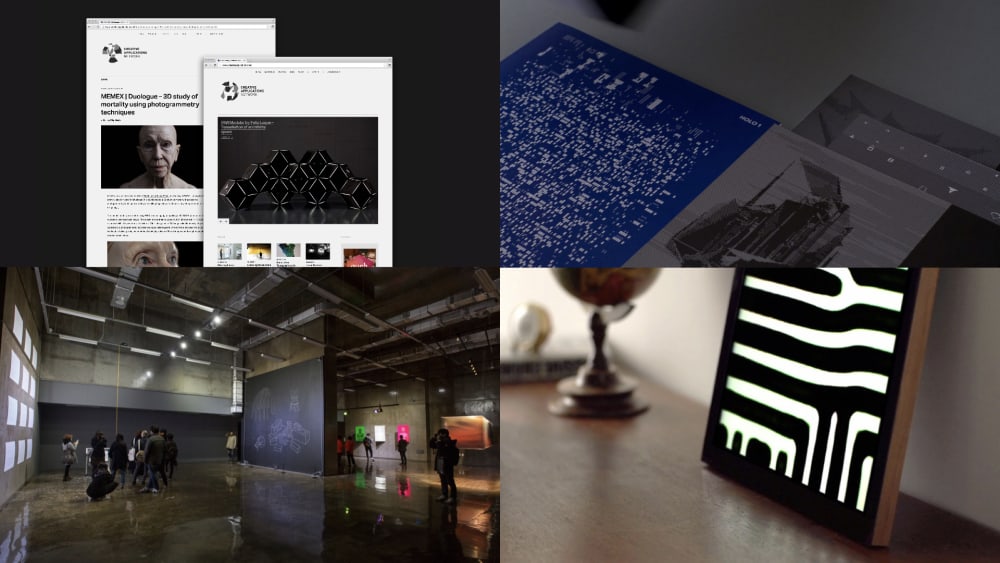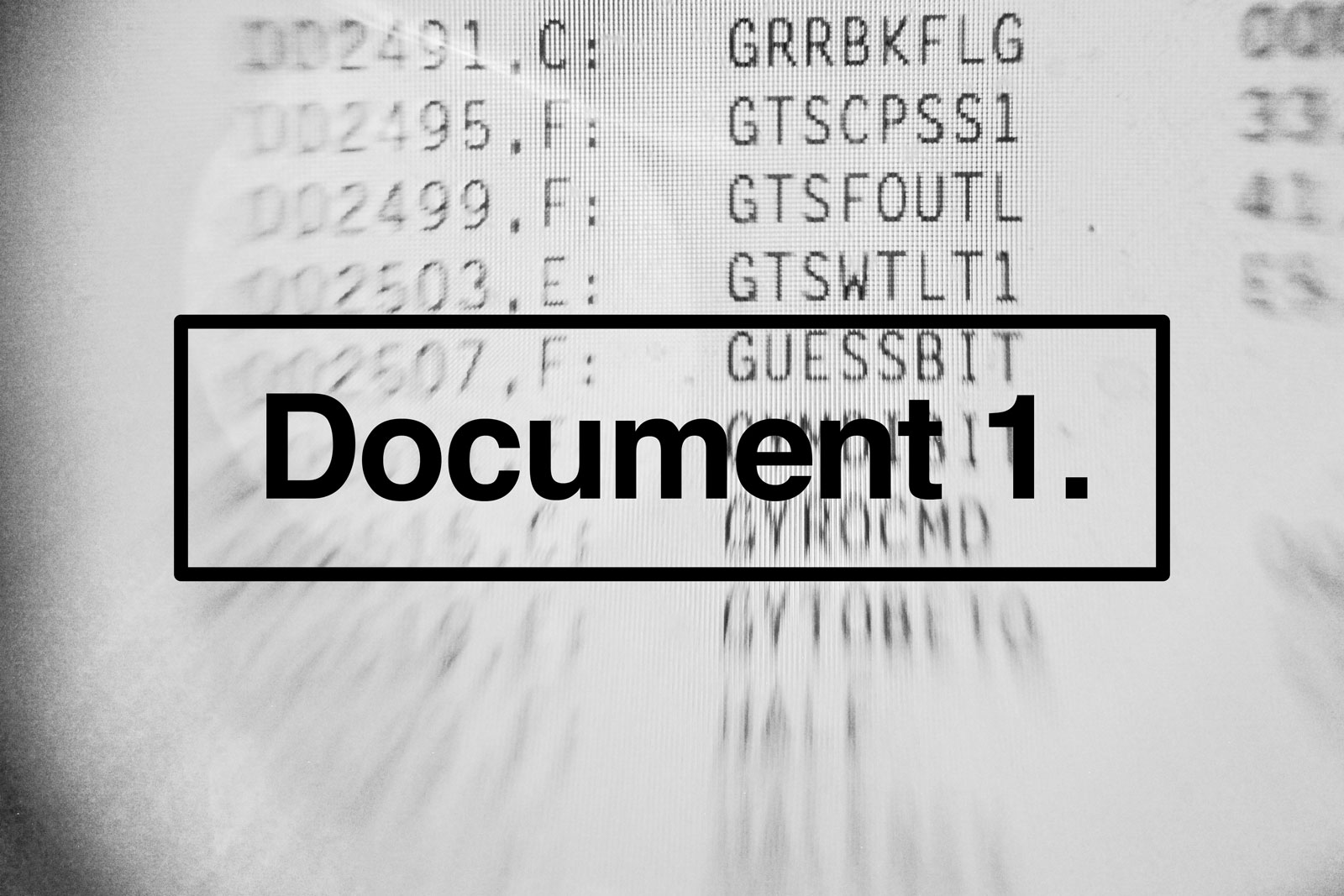UAL’s Creative Computing Institute (CCI) has teamed up with CreativeApplications.Net (CAN) to offer an exciting opportunity for the public to join cutting edge artists, designers and technologists to explore how technology is expanding the potential of art and design, by enabling practice across disciplines.
Register to join a free, public symposium in London on 13 March as part of Document 1: a series of workshops and engagement events from the CCI and CAN, drawing together the practitioners who are leading the way in understanding and experimenting with this new creative potential.
Hosted at Camberwell College of Arts, UAL, the symposium will be of interest to those interested in the converging fields of art and digital technologies.
Showcasing key practices, each with a unique approach to engaging technology as a form of cultural critique, participants will hear from four influential artists and designers whose works are described by CreativeApplications.net as “savvy critical technological and cultural narratives, providing both imaginative paths forward and cautionary warnings”:
Troika: Contemporary artist trio Troika explore how the digital world informs and crosses over into the physical world. With a particular interest in the subjective and objective readings of reality and the various relationships we form with technology, they investigate how technological advancement influences our relationship with the world and with each other. Troika’s Eva Rucki will talk about the group’s motivations and process, sharing insight from their fifteen years of practice.
Theodore Spyropoulos (Minimaforms and the Architectural Association): Architect Theodore Spyropoulos of Minimaforms and the Architectural Association’s DRL (post-professorial design) program will present an approach to design that is behaviour based, and enables an emotive and adaptive relationship with our world.
Matthew Plummer-Fernandez: An artist exploring “computational entanglements and configurations” Matthew Plummer-Fernandez will discuss the design of algorithmic systems and their potential for materialising a broader range of narratives and qualities, beyond ‘assistive’, ‘humanlike’ and ‘conversational’.
Revital Cohen & Tuur Van Balen: A collaborative practice whose work follows geological, political and biological strains within the manufactured landscape to create work that questions the context of its own becoming. Revital Cohen will talk about their recent projects.

The UAL Creative Computing Institute supports interdisciplinary teaching, research and knowledge exchange at the intersection of creativity and computational technologies. The Institute works across domains such as machine learning and artificial intelligence, alongside exploring how the contemporary world is being defined through human computer interaction and social platforms. Part of the CCI’s role is to provide a public platform to open up access to the emerging field of advanced creative computing. CCI recently awarded CreativeApplications.Net their second Fellowship. One of today’s most authoritative digital art blogs; the award recognises CAN’s singular perspective on and contribution to innovative cross-disciplinary art, media, and technology practices.
Ben Stopher, Dean, UAL Creative Computing Institute:
CAN catalogues projects, tools and platforms at the intersection of art, media, and technology. Their championing of experimental approaches towards technology in the arts resonates with many of the CCI’s core values and we can expect to see exciting work emerge from this partnership.
Filip Visnjic, CreativeApplications.net:
With technology advancing so significantly in the past decade, it has created a blurring of boundaries between adjacent fields, creating previously unimaginable opportunities within the creative sector.”
Since 2008, CAN’s central objective has been to nurture collaboration and creative exchanges across a global network of interdisciplinary practitioners. From online and offline publications to events and educational initiatives, CAN provides an open platform for dialogue and knowledge sharing by foregrounding the most forward-thinking experimental applications of technology. CAN’s numerous festival programming and curation.
As part of the CCI’s public programme, the Institute awards 3 fellowships annually to individual practitioners or organisations and includes publicly accessible lectures, workshops and more. The Fellowships connect UAL's students, practitioners and researchers with an international community of creative computational professionals, artists and activists.
As part of Document 1, CCI and CAN also have a number of students taking part in a learning programme and two-day workshop on 11 and 12 March.

